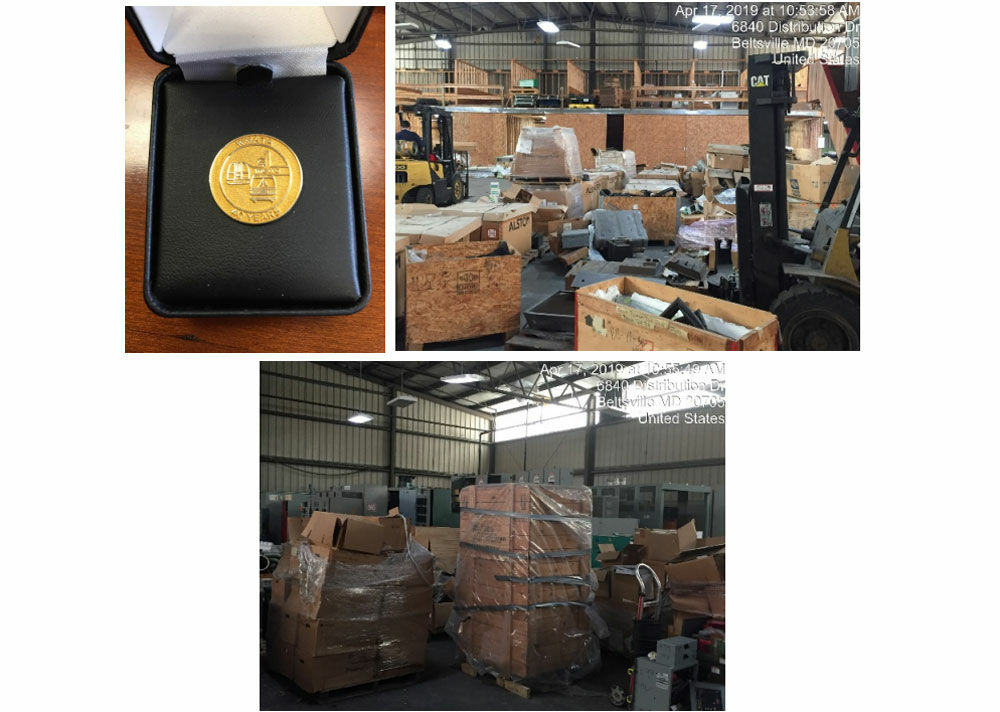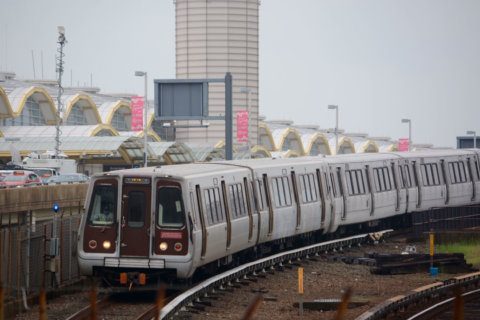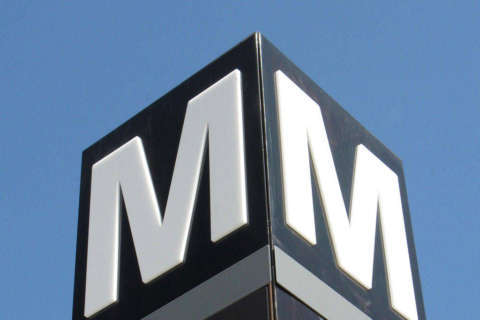
Metro wasted thousands of dollars on gold pins, had no idea what other things it owned or bought, and wasted millions of dollars paying for parking garage cleaning that never happened, according to reports from Metro’s Office of Inspector General released Thursday.
Expensive pins, no tracking of parts
More than 200 gold lapel pins worth more than $87,000 were among the items an audit found in Metro storerooms that the agency was completely unaware of — which means someone could have taken one or more of the pins without noticing.
The pins were worth $17 to $429 and were meant to honor workers with up to 40 years of service. The person responsible for those honors now, however, didn’t even know they existed.
Though Metro has since transferred the pins to the human resources department, the situation highlights a broader problem with Metro’s long-term failure to track the purchase, use and storage of all kinds of things in its 24 storerooms.
“WMATA has no ability to determine, with accuracy, the quantity, value and type of items on hand,” the audit found.
That could lead Metro to buy things it doesn’t need, or to leave things in storage for years to rot or disappear. “WMATA could not accurately account for its total supply chain inventory, or determine its value or location,” the audit said.
Metro is in the process of a long-term shift in its parts policies with the aim of reducing how many parts it has in storage, and tracking them better.
Filthy garages
The investigation into the garage-cleaning failures found “unsafe and filthy conditions” over the course of nearly two years.
“These observations included: human feces and bottles of urine in multiple garages; used condoms; significant amounts of trash and debris; broken glass; unsanitary elevators and numerous overflowing trash cans. This filth was not cleaned on a daily basis as required by Washington Metropolitan Area Transit Authority (WMATA) and remained in place for days, weeks and even months,” the audit found.
More than 80% of the time, contractors who were supposed to be cleaning were not doing their jobs, and some workers did not even stay for an eight-hour shift. One person at West Falls Church showed up, emptied two trash cans, then left. At Vienna, no one worked for three straight days.
“Similar behavior at other parking garages was repeated day after day. The root cause of these issues was the lack of oversight by WMATA and contractor officials,” the audit found.
Other parts of the problem included a lack of clear explanation of job duties by Metro or the contractor’s management, and a lack of detail on what the contract was supposed to cover.
Similar problems have been identified in other Metro contract oversight and payments.
A contract extension
Overall, Metro spent more than $2 million in this case for cleaning that did not happen, including a four-month extension of the contract, even after they were warned that the job was not being done.
“As a result of these parking garage conditions, risk of harm to the riding public increases; rodents and other vermin are attracted to the parking garages; and WMATA’s reputation is jeopardized due to unsightly conditions,” the audit found.
The contract was issued in 2013 and was eventually extended through July 31, 2019, with the billed cost increasing significantly over the period.
Metro nearly extended the contract even longer, despite the concerns, until the Office of Inspector General went to the Metro Board and other top officials to explain why the contract should be allowed to expire.
The contractor was supposed to clean certain Metro facilities, parking lots and bus loops, as well as 22 garages.
Since August, Metro has stepped up its own cleaning measures, with plans to pressure-wash remaining parking decks by the end of April.
By March, Metro promises clear cleaning schedules and responsibilities at each garage. An emergency contract to keep up with cleaning cost more than $1 million in August alone, though.
Metro promises better oversight.
Warnings
The transit system had been warned about cleaning issues in the garages before. Metro station managers are supposed to check the entire station area, including garages, on a regular basis and report any issues. Custodial supervisors are also responsible for general cleanliness issues.
From November 2017 to June 2019, the Office of Inspector General found beer bottles, broken glass cigarette boxes, food containers and other issues in garages.
Broken glass sat in the Glenmont and Minnesota Avenue garages for months, and human feces sat untouched in the Addison Road garage from at least November 2018 to January 2019.
In seven of nine garages checked, little to no work was done.







